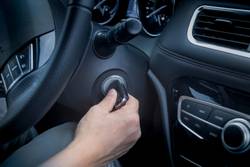Legally Reviewed By:
Brian P. Gabriel, Esquire
 Drunk driving is a rampant problem that puts everyone’s lives at risk and ends the lives of thousands each year. The CDC estimates that nearly 10,500 people died in alcohol-impaired driving crashes in 2016. Many more sustain severe injuries and endure a reduced quality of life after their DUI accident. For some, catastrophic injuries change the way they can maneuver and use their bodies. These accidents touch countless lives and cost states billions of dollars in medical bills and lost productivity. Naturally, police departments everywhere make curbing intoxicated driving a top priority when monitoring traffic.
Drunk driving is a rampant problem that puts everyone’s lives at risk and ends the lives of thousands each year. The CDC estimates that nearly 10,500 people died in alcohol-impaired driving crashes in 2016. Many more sustain severe injuries and endure a reduced quality of life after their DUI accident. For some, catastrophic injuries change the way they can maneuver and use their bodies. These accidents touch countless lives and cost states billions of dollars in medical bills and lost productivity. Naturally, police departments everywhere make curbing intoxicated driving a top priority when monitoring traffic.
DUI happens to be one of the most common criminal offenses in Florida, but too many lives are still lost. Despite years of awareness campaigns, too many drivers are poor judges of their capacity to drive after drinking. In 2017, 350 people died in a DUI crash in Florida, down from 16% from the previous year. Could technology help states eliminate the problem of drunk driving once and for all?
How would Federal Action Help Curb Drunk Driving?
Many systems already exist that help keep people driving while sober, including ignition interlock devices or IIDs. Twenty-eight states and DC have made it a law to require convicted drunk drivers to install IIDs in their vehicles. In Florida, a judge may sentence a first-time DUI offender to install an IID, but state law allows the judge to use discretion. There is currently no mandate for judges to require IIDs from the first DUI conviction across all 50 states.
One representative from Michigan is trying to change that. During a hearing in the U.S. House of Representatives to discuss the tens of thousands of accident fatalities that occur each year, U.S. Rep. Debbie Dingell (D-MI) noted that there’s a need for federal action to prevent drunk driving. She encouraged colleagues to support the Abbas Drunk Driving Act (H.R. 514), which would empower the National Highway Traffic Safety Administration (NHTSA) to enforce the rule that all new motor vehicles be equipped with ignition interlock devices.
The proposed law may be considered controversial because it would require all drivers, including those who have never had a drop of alcohol, to breathe into an IID before starting their cars. Still, it’s one way to ensure that drunk drivers cannot start their vehicles and endanger other motorists, cyclists, and even people walking on the sidewalk.
How Technology is Already Saving Lives from Impaired Driving
While car accident statistics remain grim, the truth is that advancements in technology are already helping society prevent them. Transportation network companies or TNCs (more commonly known as “rideshare companies”) like Uber and Lyft have proliferated across the country, empowering customers to hail a ride whenever they want. The ease with which a person can request a ride to and from an event where alcohol will be served has contributed to a reduction of drunk drivers.
These digital designated drivers have been linked to some significant reductions in DUIs, particularly in densely populated urban areas.
Technology that has been tested in autonomous or self-driving vehicles has tremendous potential for further reducing drunk driving crashes and fatalities. AVs, unlike human drivers, cannot become impaired or distracted. Cars that can be programmed to adhere to the rules of the road despite their operators’ physical and mental state can save lives.
Contact a West Palm Beach DUI Lawyer if You Face Charges
In an overzealous attempt to enforce traffic laws and establish authority, many officers incorrectly arrest drivers for drunk driving. If you’ve been pulled over and pressured into taking a breath test, you deserve legal representation. Whether you reached a BAC of 0.08 or not, the officer may charge you for drunk driving if he or she believes you were impaired behind the wheel. BAC tests like the Intoxilyzer are also susceptible to myriad errors. You need an attorney to research all the facts of your case to present a strong defense in court.
You must protect your rights whenever law enforcement accuses you of committing an offense, regardless of whether its a “minor” charge like a misdemeanor DUI or a felony like DUI manslaughter. Attorney Brian P. Gabriel with The Law Office of Gabriel & Gabriel has dedicated his career of more than 30 years to providing competent defenses to those who have been accused of DUI and related crimes. With a free consultation, discover how he can help you navigate the complex criminal justice system. Call 561-622-5575 or complete a contact form to begin.



